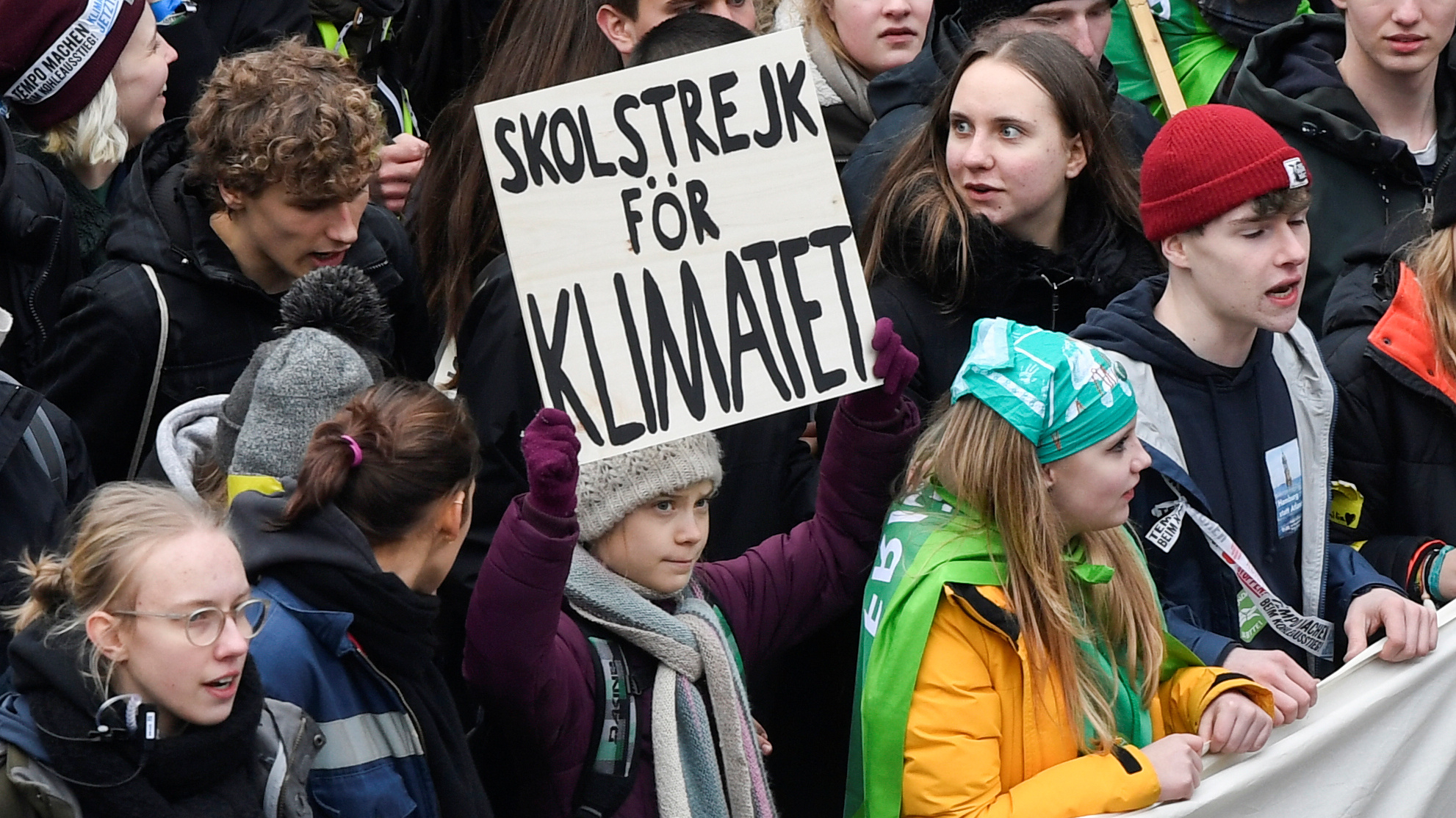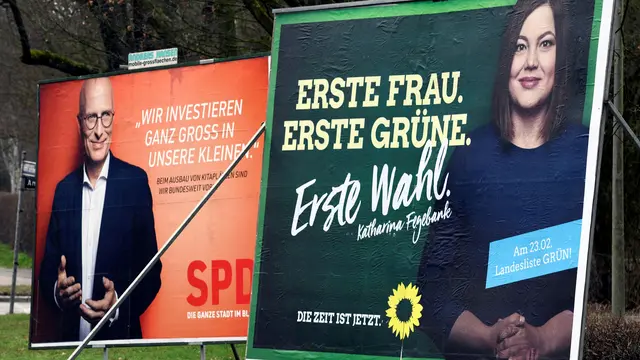
Election posters of Hamburg candidates for mayor, Peter Tschentscher (left) with the SPD and Katharina Fegebank (right) with the Greens (Credit: Reuters/ Fabian Bimmer)
Voters in the city of Hamburg may have ousted the far-right and many turned their backs on Angela Merkel's conservatives in a regional election, Sunday, according to exit polls.
The Infratest exit poll, cited by AFP, showed that the biggest winners were the Green Party, who more than doubled their backing to 25 percent as climate change concerns continue to dominate German politics.
Hamburg residents went to the polls in an election against a backdrop of chaotic federal politics and growing concerns over climate change. The Green Party's success signals that they could replace the center-left Social Democratic Party (SPD) as the country's second party after Angela Merkel's Christian Democratic Union (CDU).
The far-right Alternative for Germany (AfD) may have failed to achieve over five percent of the vote, if so they would not pass the threshold to enter the regional parliament.
The SPD are expected to garner 37.5 percent of the vote, defending their position in the regional parliament despite shedding eight points since 2015.
"We have to hold our ground against the federal trend," Peter Tschentscher, Hamburg's incumbent mayor and SPD member told AFP ahead of the vote.
By contrast, the CDU lost more than four points according to the exit poll, to 11.5 - one of their worst tallies in any German region.
The Green Party has won gains in the rest of Germany because of increasing concerns about climate change. In Hamburg, the Green Party has pledged to make the city carbon neutral by 2035, 15 years before Germany's national target. Katharina Fegebank, the Greens' local leader has also joined students and Greta Thunberg in a Friday protest.
The SPD in Hamburg has followed this trend by proposing green policies, such as plans to convert the city's coal power plant to natural gas and making the city mostly car-free.

Greta Thunberg at a Fridays for future protest in Hamburg. (Credit: Reuters/ Fabian Bimmer)
The CDU's poor showing comes after another regional vote in Thuringia on 10 February, the aftermath of which saw Merkel's chosen successor Kramp-Karrenbauer stepping down as CDU leader.
This decision was the result of regional members of the party working with the far-right AfD to vote in a member of the business-friendly Free Democrats as state premier.
The SDP has also not recovered from the 2017 elections when It received a historic low result. Since then, the party has moved through multiple leaders, until they landed on the duo Norbert Walter-Borjans and Saskia Esken. Both of who have been absent from campaign events in Hamburg.
Source(s): AFP ,AP ,Reuters
 简体中文
简体中文





